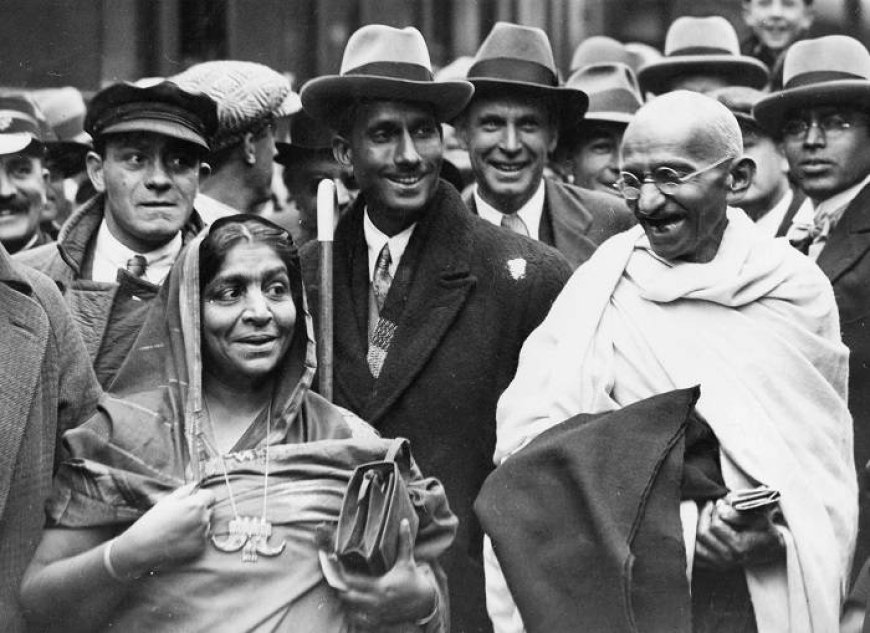Understanding Libertarianism’s Rise in Latin America and Its Relevance to India
Explore the rise of libertarianism in Latin America and its relevance for India. Discover how similar socio-economic challenges and historical backgrounds could make libertarian principles a valuable solution for India's political landscape

I. Introduction
Libertarianism is a political philosophy advocating for individual freedom, minimal government intervention, and free-market principles. Recently, this ideology has gained significant traction in Latin America. This article explores the rise of libertarianism in Latin America and examines its potential relevance for India, a country facing similar socio-economic challenges.
II. The Growth of Libertarianism in Latin America

Historical Background and Political Landscape
Latin America has seen a notable rise in libertarian ideas, fueled by economic instability and dissatisfaction with traditional political systems. Key countries like Brazil, Argentina, and Chile have become central to this movement.
Key Countries Leading the Libertarian Movement
- Brazil: Paulo Guedes, a prominent economist and current Minister of Economy, has been a key advocate of libertarian principles.
- Argentina: José Luis Espert, a leading politician, has promoted reforms including deregulation and privatization.
- Chile: The country has seen increased libertarian influence in recent years, pushing for economic reforms and reduced state intervention.
Influential Leaders and Thinkers
Leaders such as Paulo Guedes and José Luis Espert have played pivotal roles in promoting libertarian policies. Their advocacy for tax cuts, privatization, and reduced government spending reflects a broader trend across the region.
Major Policies and Reforms
Libertarian policies in Latin America have led to significant reforms, including:
- Tax Cuts: Reducing tax burdens to stimulate economic growth.
- Privatization: Shifting state-owned enterprises to the private sector.
- Reduced Government Spending: Cutting down on unnecessary government expenditures.
III. Factors Contributing to Libertarianism’s Popularity
Economic Challenges
Severe economic crises in Latin America have driven interest in alternative models. Libertarian policies, emphasizing free markets and economic freedom, offer promising solutions.
Social Movements
Grassroots movements advocating for individual freedoms and reduced government interference have gained momentum, supporting libertarian principles.
Technology and Social Media
The rise of digital platforms has facilitated the rapid spread of libertarian ideas, enabling greater engagement and mobilization.
External Influences
Global libertarian organizations have supported the spread of libertarian ideals across Latin America, providing resources and strategic guidance.
IV. Similarities Between Latin America and India

Colonial Legacy
Both regions share a history of colonial rule and subsequent struggles for independence, which have shaped their political and economic systems.
Diverse Societies
The socio-economic diversity in both Latin America and India presents unique challenges, such as economic inequality and governance issues.
Common Challenges
Economic disparity, corruption, and inefficient governance are prevalent in both regions. Libertarian solutions, such as decentralization and market-oriented reforms, could address these issues effectively.
V. Libertarianism’s Potential in India
Current Political Landscape
India’s political environment is evolving, with increasing dissatisfaction towards traditional parties. Emerging libertarian voices are gaining attention.
Emerging Libertarian Voices
New libertarian movements and figures in India are advocating for reforms inspired by libertarian principles, focusing on economic liberalization and governance reforms.
Potential Reforms and Policies
- Economic Liberalization: Promoting free-market policies to enhance growth and reduce bureaucracy.
- Governance Reforms: Advocating for a more efficient and decentralized government.
- Criminal Justice Reform: Implementing policies focused on individual rights and rehabilitation.
Challenges and Opportunities
The Libertarian Party in India faces challenges such as limited recognition and financial constraints but also has opportunities to influence policy and public opinion.
VI. Lessons from Latin America for India
Effective Advocacy
Successful promotion of libertarianism requires clear messaging and public engagement. Grassroots efforts and digital platforms are essential for this.
Strategic Alliances
Building alliances with like-minded organizations and global networks can strengthen the movement and provide additional support.
Grassroots Mobilization
Engaging with local communities and addressing their specific concerns can help build a robust base for libertarian ideas.
VII. CASE STUDY: JAVIER MILEI IN ARGENTINA
Javier Milei, a prominent libertarian economist and politician in Argentina, has captured public attention with his outspoken criticism of government policies and advocacy for economic freedom. Milei’s proposals, including drastic tax cuts and deregulation, have resonated with a populace frustrated by economic mismanagement and high inflation. His influence extends beyond Argentina, inspiring libertarian movements across Latin America.
.
VIII. THE VENEZUELAN ELECTIONS AND LIBERTARIANISM
Venezuela’s recent elections highlighted the growing appeal of libertarian ideas in a country plagued by economic crisis and authoritarianism. Libertarian candidates emphasized the need for economic liberalization and political freedoms, offering hope to a population yearning for change. The election results signal a potential shift towards libertarian policies, despite the challenging political landscape.
IX. CONCLUSION
The rise of libertarianism in Latin America offers valuable insights and inspiration for India. By understanding and adapting these principles, India can explore new avenues for economic and political reform, paving the way for a freer and more prosperous society.
X. FAQS
- What is libertarianism? Libertarianism is an ideology advocating for individual freedoms, limited government, and free markets.
- How has libertarianism impacted Latin American countries? Libertarianism has influenced economic policies and political reforms in several Latin American countries.
- What are the main challenges libertarianism faces in India? Political resistance, public awareness, and socio-economic disparities are significant challenges.
- How can individuals get involved in promoting libertarianism in India? Engaging in grassroots movements, leveraging social media for advocacy, and forming alliances with global organizations are effective strategies.
What's Your Reaction?

















































